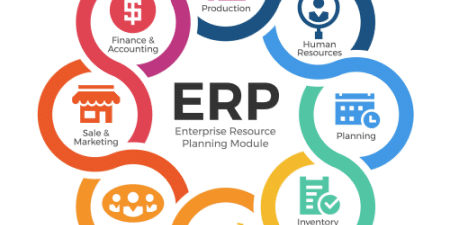What is ERP and How Can It Benefit Your Business
Enterprise resource planning (ERP) is a software system that integrates various business functions such as finance, human resources, procurement, and supply chain management into a single platform. This technology has revolutionized the way companies manage their resources and has become a crucial tool for any business looking to stay competitive in the modern business landscape. In this article, we will explore what ERP is, how it works, and the benefits it can bring to your business. As a business consultant, Eureka BI has seen many businesses struggle with managing their operations effectively. One of the most common issues is the lack of a cohesive system for managing resources and data. This is where Enterprise Resource Planning (ERP) comes in.
CHECK THIS OUT: ESMPS
What is ERP?
ERP is a type of business management software that helps organizations manage and automate their core business processes. It typically includes modules for accounting, human resources, customer relationship management, supply chain management, and inventory management. ERP systems provide a centralized database that allows employees across different departments to access and share information in real-time, increasing efficiency and reducing errors.
How does ERP work?
An ERP system is made up of various modules, each designed to manage a specific business function. These modules are integrated into a single system and share data and processes, providing a comprehensive view of the entire organization’s operations.
ERP systems use a centralized database that stores all data related to business processes. This database can be accessed by all authorized employees, allowing them to view and update information in real-time. ERP systems also often include reporting and analytics tools that enable businesses to gain insights into their operations and make data-driven decisions.
Benefits of ERP
ERP systems offer a range of benefits for businesses of all sizes. Some of the key benefits include:
- Improved Efficiency – ERP systems automate many manual tasks, reducing the amount of time and effort required to perform routine tasks. This frees up employees to focus on more important tasks, improving overall productivity and efficiency.
- Better Collaboration – ERP systems provide a centralized platform that allows employees across different departments to access and share information in real-time. This improves collaboration and communication across the organization.
- Enhanced Data Visibility – ERP systems provide a centralized database that stores all data related to business processes. This enables businesses to gain insights into their operations and make data-driven decisions.
- Improved Customer Service – ERP systems include modules for customer relationship management, enabling businesses to better track and manage customer interactions. This can lead to improved customer satisfaction and loyalty.
- Reduced Costs – By automating manual tasks and improving efficiency, ERP systems can help businesses reduce their operating costs. They can also help businesses avoid costly errors and make more informed decisions, reducing the risk of financial losses.
 READ ALSO: How does ERP work?
READ ALSO: How does ERP work?
Choosing the Right ERP System
When choosing an ERP system, businesses need to consider their specific needs and requirements. Some factors to consider include:
- Scalability – Businesses should choose an ERP system that can scale with their needs as they grow.
- Integration – ERP systems should integrate with other business applications and systems, such as CRM and accounting software.
- Customization – Businesses may need to customize their ERP system to meet their specific requirements. The chosen system should allow for customization without compromising its core functionality.
- Support and Maintenance – The chosen ERP system should be backed by reliable support and maintenance services to ensure that it runs smoothly and is updated regularly.

In short, ERP systems are a powerful tool for managing and automating core business processes. They offer a range of benefits, including improved efficiency, better collaboration, enhanced data visibility, improved customer service, and reduced costs. When choosing an ERP system, businesses should consider their specific needs and requirements, including scalability, integration, customization, and support and maintenance. With the right ERP system in place, businesses can streamline their operations, reduce errors, and make more informed decisions, helping them stay competitive in today’s fast-paced business landscape. To find out more or to get your staff trained in this, contact Eureka BI. We provide innovative and data-driven strategic business development services for sustained growth and success.








